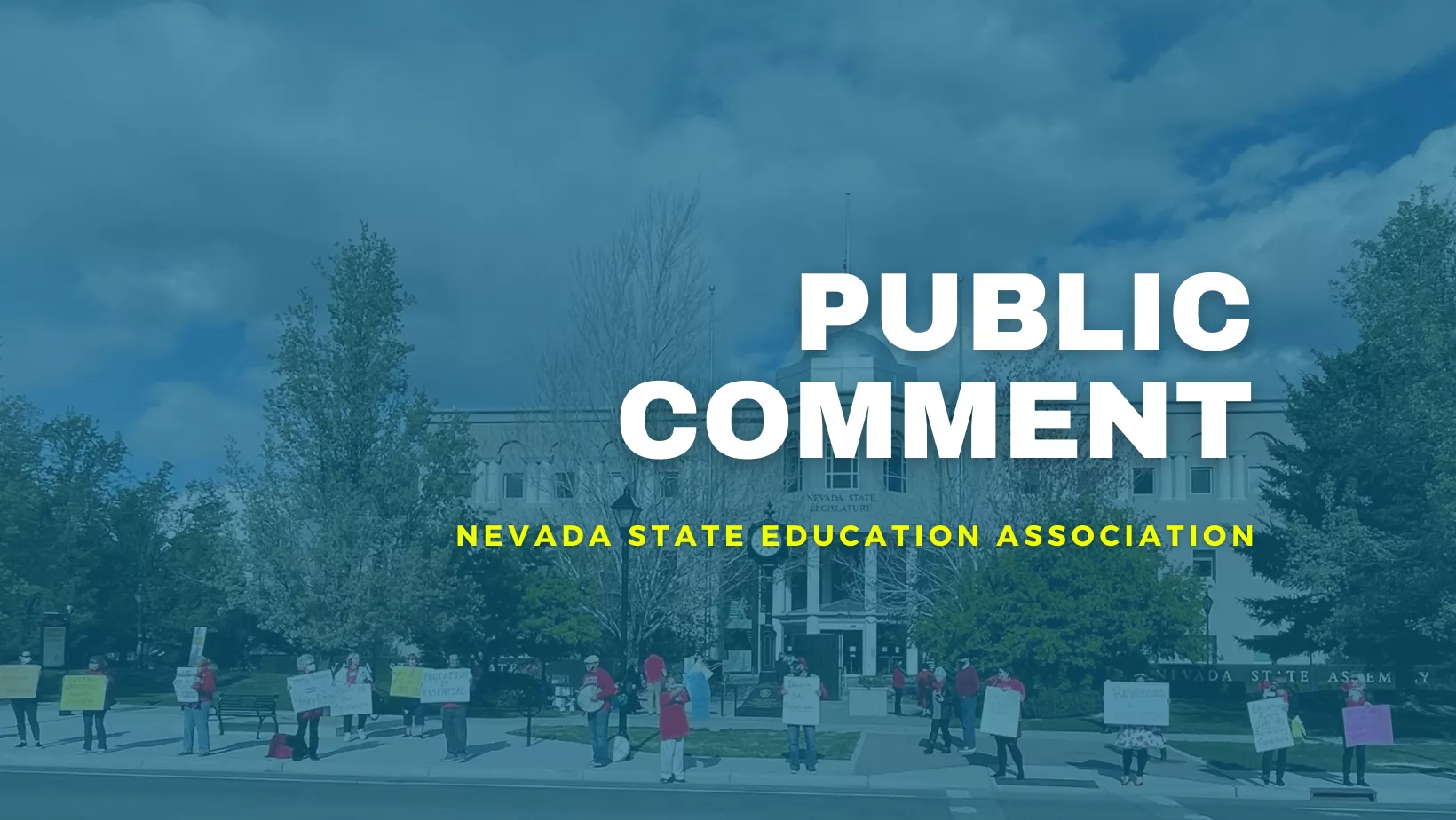As the work of the Interim Education Committee gets underway, you will hear a presentation on the state of public education in Nevada. Unfortunately, there is no sugarcoating it. The state of public education is dire. For decades, Nevada has ranked near the bottom of states in education funding and quality. In the 2021 Quality Counts report from Education Week, Nevada dropped to 49th in School Finance and tied for 49th in their overall “Chance for Success” index. And we all know Nevada has the largest class sizes in the county.
Despite these poor ratings, our schools have stayed afloat due to the commitment and hard work of countless teachers and support professionals. However, with the toll of the COVID-19 pandemic, our schools and educators are at a breaking point. School districts across the state are not fully able to meet the needs of their communities. We have bus routes without drivers, classrooms without highly qualified teachers, and other vacancies for critical school employees. When teachers are absent for medical reasons or required professional development, a substitute may not be available, further burdening an exhausted teaching corps that must fill the gaps.
Currently, in the Clark County School District alone, there are 814 certified positions posted, along with another 418 open support professional positions.
The situation is not improving, and that is despite unprecedented resources available from the federal government.
Meanwhile, when the Legislature provided the opportunity to remove an item from teacher workloads this school year by passing AB57 to temporarily pause the use of student learning goals (SLGs) in teacher evaluations, the Nevada Department of Education issued a guidance memorandum encouraging districts to require teachers to do SLGs anyway. Most school districts, including Clark County and Carson City, deferred to NDE, and this limited opportunity to actually ease teacher workloads was squandered.
While enrollment in our neighborhood public schools has remained relatively flat, the charter sector has seen significant growth. Despite this, charters’ baked-in biases against disadvantaged students continue, serving a much lower percentage of at-risk students, English learners, and students with disabilities. This further undermines local public schools and communities.
Making matters even worse, we are amidst unprecedented attacks on our local school boards and educators. Educators and school board members have been threatened, spit on, and had masks pulled off. Some people have protested carrying assault rifles. There are disinformation campaigns about vaccines, masks, and critical race theory, and school board members have resigned fearing for their safety. Some in the Legislature seem to think appointing school board members would fix these problems; however, that proposal seems like little more than yet another distraction to educators.
As we work our way through the COVID-19 pandemic, our schools and their operations continue to suffer.
With unprecedented resources available, now is the time to invest in our educators.
This means better pay and benefits but also includes workplace issues like class size, caseloads, over-burdening professional responsibilities, and the valuing of educator voice and agency in their work. NSEA looks forward to working with the Interim Committee on Education on these urgent issues.
